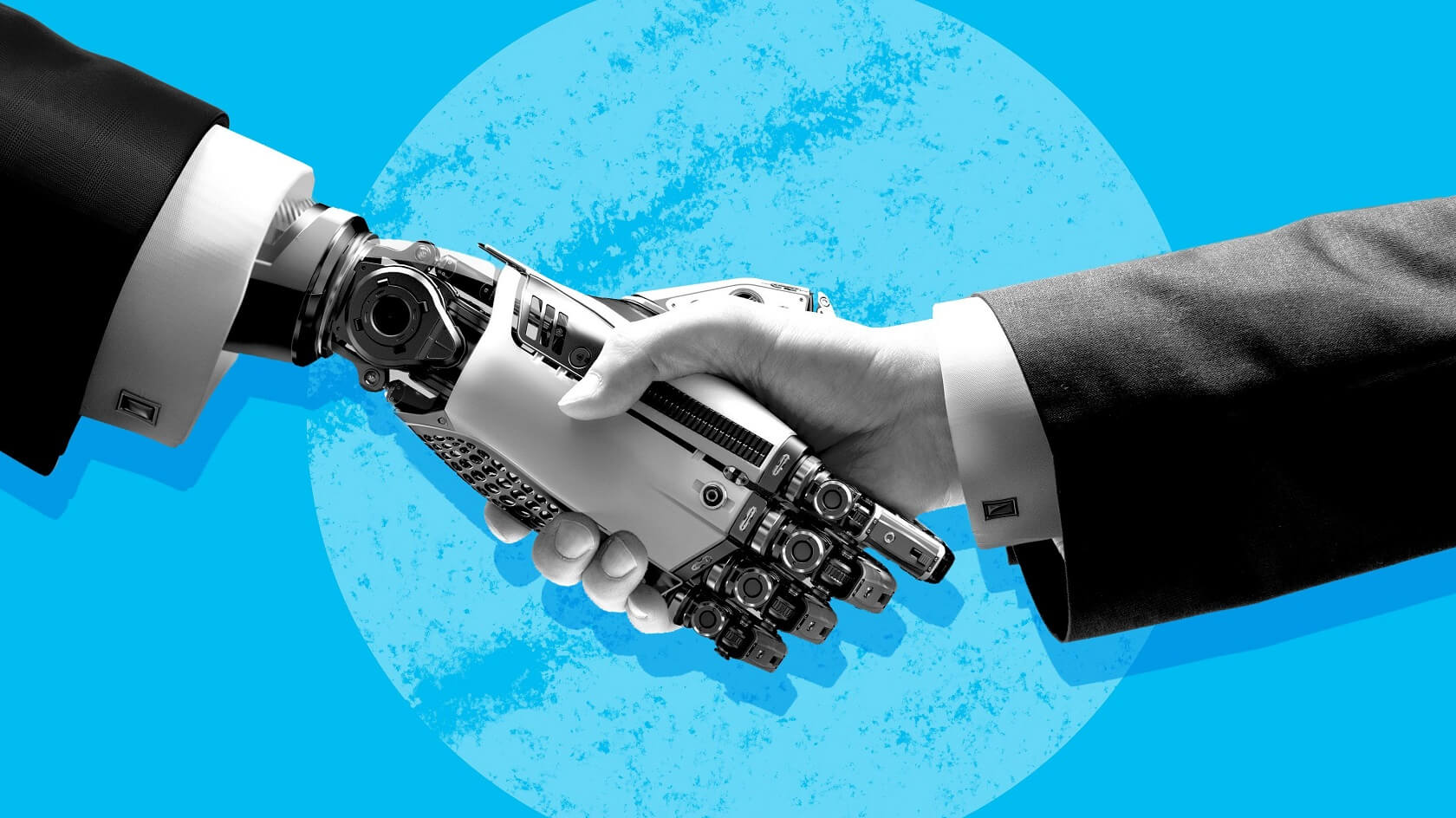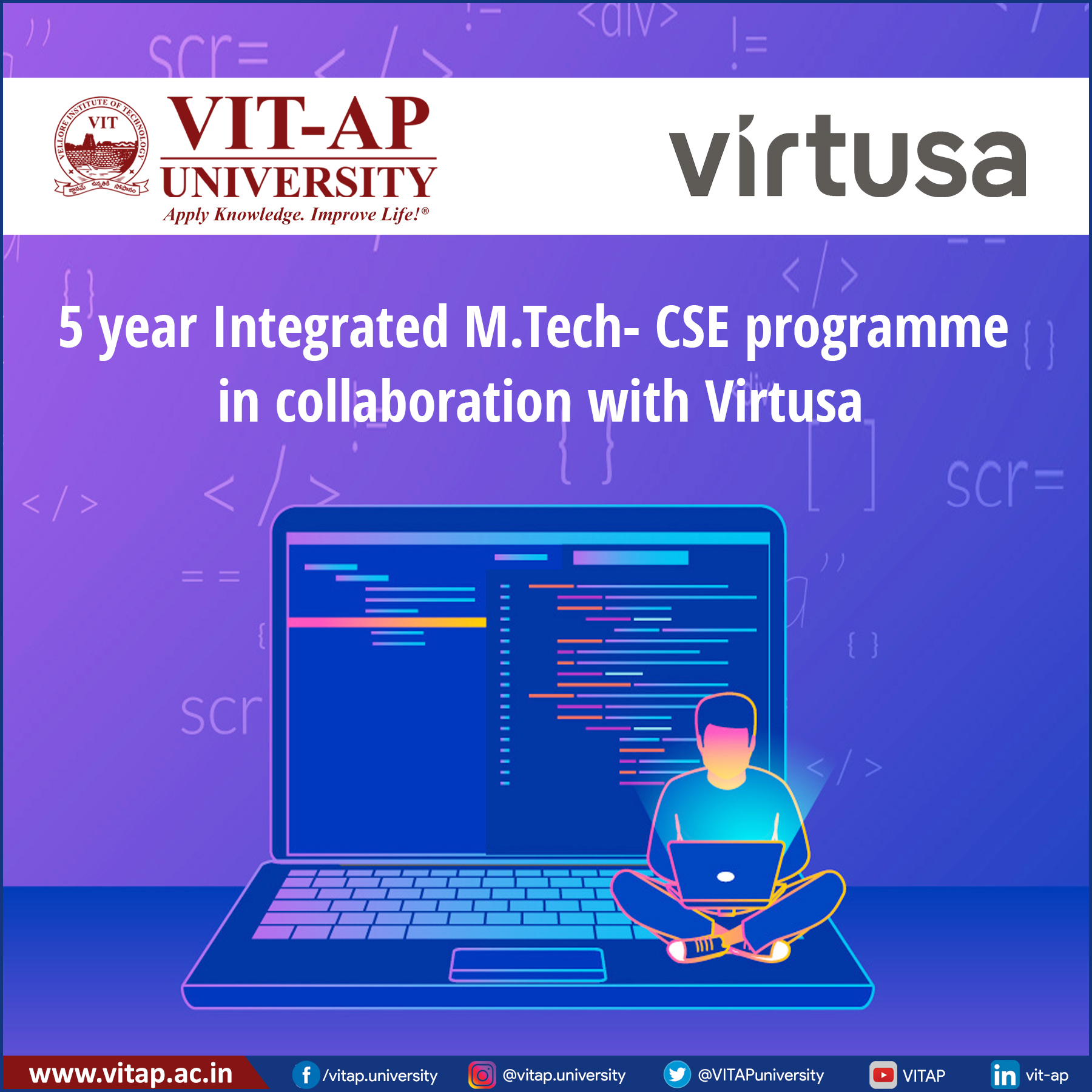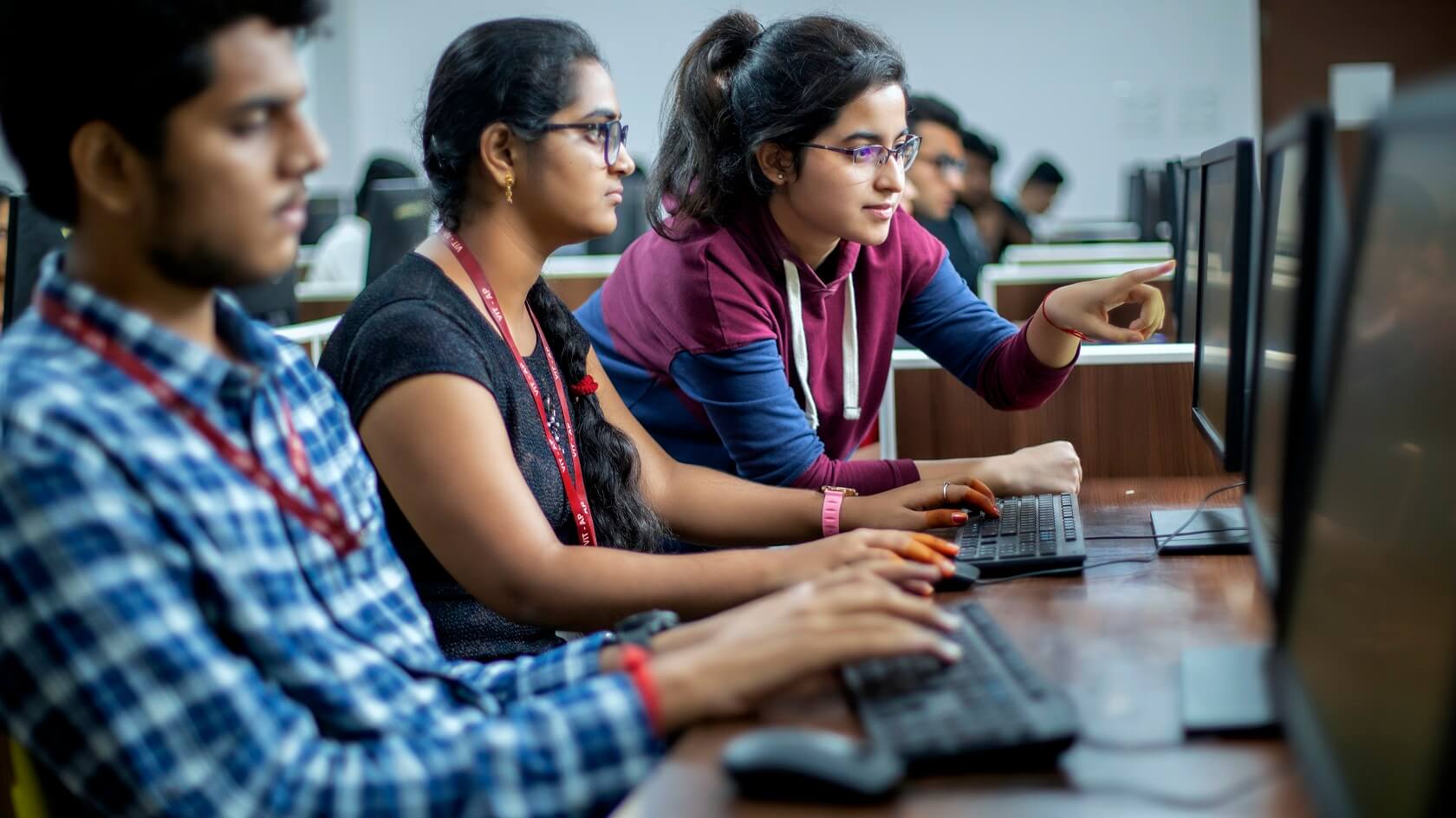
About the Programme
The School of Computer Science and Engineering offers a B. Tech program in Computer Science and Engineering with specialization in Artificial Intelligence and Machine Learning. This program aims to provide students with a solid foundation in the principles and techniques of AI and ML, as well as hands-on experience in applying these technologies to real-world problems.
Throughout the program, students will learn about the various subfields of AI and ML, including Computer Vision, Natural Language Processing, Robotics, Deep Learning, and others. They will study algorithms and techniques for machine learning and gain practical experience through laboratory work and projects.
The program is designed to be interdisciplinary, drawing on coursework and expertise from a variety of fields, including computer science, mathematics, and statistics. In addition to the core coursework, students will have the opportunity to participate in research projects, both within the department and with other departments and institutions.
Graduates of the B.Tech program in Computer Science and Engineering (Artificial Intelligence and Machine Learning) will have a deep understanding of the principles and practices of AI and ML, and will be prepared to work in a variety of industries and roles, including data analysis, software development, and research. They will be well-equipped to tackle challenging problems and contribute to the advancement of AI and ML.
Eligibility
- The applicant should be a Resident / Non-Resident Indian National / PIO / OCI.
- NRI applicants can directly apply under ‘NRI Category’ through NRI application form. (https://vit.ac.in/admissions/international/overview)
- Foreign applicants who studied/studying abroad can apply directly through the International application form.(Will be available shortly)
- Applicants whose date of birth falls on or after 1st July 2002 are eligible to apply for Engineering admission 2024.
- The date of birth as recorded in the High School / SSC / X Certificate will be considered authentic.
- Applicants should produce this certificate in original as proof of their age at the time of counseling/admission, failing which their candidacy for admission will be disqualified.
Application Process
Fee
FEE STRUCTURE |
|
|---|---|
| Tuition Fees (Per Annum) | INR 1,95,000 * |
| Caution Deposit (Refundable) | INR 3,000 |
| Total fees to be paid for first year | INR 1,98,000 |
(*after concession)
Key Features
- Well-Designed Curriculum & Course Structure: The curriculum has been designed as per the latest industry demands.
- Choice Based Credit System (CBCS): Students have the option to choose program electives based on their interests.
- Academic Flexibility: Students have the option to choose open electives from other domains (other than computer science) with the aim to enhance their skills and more scope of taking up case studies, projects, assignments, and vocational training including entrepreneurship.
- Holistic Development of Students: Technical Clubs like Robotics Club, IEEE Students’ chapter, IE(I) and ICEIT chapters, etc. allow the students to learn and update themselves with the latest technologies and showcase their abilities in various fields, outside their scope of the study.
- Placements: Placements assistance (Mock Drives/Interviews), Internships Assistance, Placement classes by the expert team of Training and Placement.
Career Prospectus
Artificial and Machine Learning computer engineer apply the principles of computer science and mathematical analysis to the design, develop, test and evaluate various automations. The tasks performed by the engineers of this discipline evolve quickly, reflecting on new developments or changes in technology, according to the preferences and practices of the employers.
- ★ Machine Learning Engineer – Design, develop and implement ML algorithms.
- ★ Data Engineer – Design and build scalable data processing systems and pipelines.
- ★ AI Software Engineer – Develop software applications that incorporate AI technologies.
- ★ AI DevOps Engineer – Manage the deployment, scaling, and maintenance of AI systems.
- ★ Robotics Engineer – Design and develop intelligent robots and robotic systems.
- ★ Computer Vision Engineer – Design and develop computer vision systems and applications.
- ★ Natural Language Processing (NLP) Engineer – Design and develop NLP systems and applications.
- ★ AI Solutions Architect – Design and build end-to-end AI solutions for clients.
The 4-year degree program will nurture and transform the students into a highly skilled professional to land a high paying AI-ML job in various Nationals & International Platform.
Design Your Own Degree (DYOD)
- ★ Students are given options to select either a Specialization or Minor along with their choice of B.Tech. Major during counselling
- ★ A student is allowed to change his/her choice of Specialization or Minor after the completion of first year in the University as per their evolving interests
- ★ A student can also choose to do a Double Major instead of Specialization or Minor starting second year
Specialization | Minors | Double Major |
|---|---|---|
Artificial Intelligence and Machine Learning | VLSI | Electronics & Communication Engineering |
Data Analytics | Image and Video Processing | Mechanical Engineering |
Cyber Security | Embedded Systems | Applied Science |
Edge Computing | Internet of Things (IoT) | Business Management |
Software Engineering | Electronics & Comm. Engineering | Economics |
Geo Informatics | Electric Vehicle Technology | Digital Humanities |
Blockchain | Digital Manufacturing | Media and Communication |
Automotive Design | ||
Robotics | ||
Mechanical Engineering | ||
FinTech | ||
Digital Marketing | ||
Econometrics | ||
Performing Arts | ||
Computational Mathematics | ||
Corporate Law |
Know Your Opportunity
- ★ Machine Learning Engineer – Design, develop and implement ML algorithms.
- ★ Data Engineer – Design and build scalable data processing systems and pipelines.
- ★ AI Software Engineer – Develop software applications that incorporate AI technologies.
- ★ AI DevOps Engineer – Manage the deployment, scaling, and maintenance of AI systems.
- ★ Robotics Engineer – Design and develop intelligent robots and robotic systems.
- ★ Computer Vision Engineer – Design and develop computer vision systems and applications.
- ★ Natural Language Processing (NLP) Engineer – Design and develop NLP systems and applications.
- ★ AI Solutions Architect – Design and build end-to-end AI solutions for clients.
Programme Outcomes
1. Engineering knowledge: Apply the knowledge of mathematics, science, engineering fundamentals and an engineering specialization to the solution of complex engineering problems.
2. Problem analysis: Identify, formulate, review research literature, and analyze complex engineering problems reaching substantiated conclusions using first principles of mathematics, natural sciences and engineering sciences.
3. Design/development of solutions: Design solutions for complex engineering problems and design system components or processes that meet the specified needs with appropriate consideration for the public health and safety, and the cultural, societal, and environmental considerations.
4. Conduct investigations of complex problems: Use research–based knowledge and research methods including design of experiments, analysis and interpretation of data, and synthesis of the information to provide valid conclusions.
5. Modern tool usage: Create, select, and apply appropriate techniques, resources, and modern engineering and IT tools including prediction and modeling to complex engineering activities with an understanding of the limitations.
6. The engineer and society: Apply reasoning informed by the contextual knowledge to assess societal, health, safety, legal and cultural issues and the consequent responsibilities relevant to the professional engineering practice.
7. Environment and sustainability: Understand the impact of the professional engineering solutions in societal and environmental contexts, and demonstrate the knowledge of, and need for sustainable development.
8. Ethics: Apply ethical principles and commit to professional ethics and responsibilities and norms of the engineering practice.
9. Individual and teamwork: Function effectively as an individual, and as a member or leader in diverse teams, and in multidisciplinary settings.
10. Communication: Communicate effectively on complex engineering activities with the engineering community and with society at large, such as, being able to comprehend and write effective reports and design documentation, make effective presentations, and give and receive clear instructions.
11. Project management and finance: Demonstrate knowledge and understanding of the engineering and management principles and apply these to one’s own work, as a member and leader in a team, to manage projects and in multidisciplinary environments.
12. Life–long learning: Recognize the need for, and have the preparation and ability to engage in independent and life–long learning in the broadest context of technological change.
Programme Educational Objectives
PEO1: Graduates will be engineering practitioners and leaders, who would help solve industry‘s technological problems.
PEO2: Graduates will be engineering professionals, innovators or entrepreneurs engaged in technology development, technology deployment, or engineering system implementation in industry.
PEO3: Graduates will function in their profession with social awareness and responsibility.
PEO4: Graduates will interact with their peers in other disciplines in industry and society and contribute to the economic growth of the country.
PEO5: Graduates will be successful in pursuing higher studies in engineering or management.
PEO6: Graduates will pursue career paths in teaching or research.
Programme Specific Outcome
PSO1: Design and develop intelligent automated systems applying mathematical, analytical, programming and operational skills to solve real world problems.
PSO2: Apply machine learning techniques, software tools to conduct experiments, interpret data and solve complex problems.
PSO3: Implement engineering solutions for the benefit of society by the use of AI and ML.
FAQs
1. Why should I take admission in AIML program?
A. With the advancement of the technologies, automation is taking place at a large scale in various industries (Industry 5.0) which may require to develop knowledge of programming languages, applied mathematics, algorithmic thought, deep learning and neural networks. AI/ML department provides the right platform to be an engineer and professional of a new world.
2. What sort of experimental knowledge will be delivered to students?
A. The student will get experimental knowledge of Data Analytics, development of applications based on AI techniques, Machine Learning techniques and its real-world implementation. Apart from above a student may get practical knowledge in the different domain like sentiment analysis, natural language processing, designing chatbots, digital twin modelling etc.
VIDEOS
Contact Us
Dr Reeja S R
Professor & HOD
Dept.of AI & ML
VIT-AP University, Amaravathi, Andra Pradesh
hod.aiml@vitap.ac.in
0863 23700967






